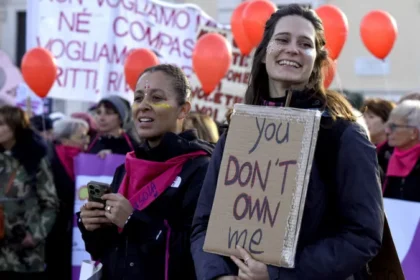Burkina Faso’s transitional, unelected parliament has unanimously passed a law criminalising homosexual acts, intensifying the country’s shift toward stricter regulation of same-sex relationships.
The legislation, passed on Monday, introduces prison sentences of two to five years and fines for individuals found guilty of engaging in same-sex acts. Justice Minister Edasso Rodrigue Bayala confirmed the penalties in a statement on state television, adding that foreign nationals convicted under the law will also face deportation.
This move follows the adoption of a draft amendment to the country’s family code last year, which included provisions targeting homosexuality. The bill now awaits formal approval from Captain Ibrahim Traoré, the military leader who took power in 2022 after deposing Lt Col Paul-Henri Damiba.
Burkina Faso had previously stood out as one of only 22 African countries where same-sex relations were legal. Unlike many former British colonies, which inherited colonial-era anti-gay laws, Burkina Faso—once a French colony—did not adopt such legislation after gaining independence in 1960.
However, the new law aligns the country with a growing regional trend of anti-LGBTQ+ crackdowns. In 2024, Mali, a neighbouring country also under military rule, passed similar legislation. Nigeria, Ghana, and Uganda have also pursued or enacted anti-LGBTQ+ laws in recent years.
Uganda currently holds the harshest provisions on the continent, with so-called “aggravated homosexuality” punishable by death, and life sentences imposed for consensual same-sex relations.
International organisations, including the World Bank, have responded critically to such laws. The Bank previously suspended funding to Uganda over its anti-LGBTQ+ legislation, though the ban was later lifted.
Burkina Faso remains a deeply conservative and religious society, with fewer than 10% of the population unaffiliated with a religion. The new legislation marks a significant legal shift and positions the country firmly within a broader continental movement against LGBTQ+ rights.















